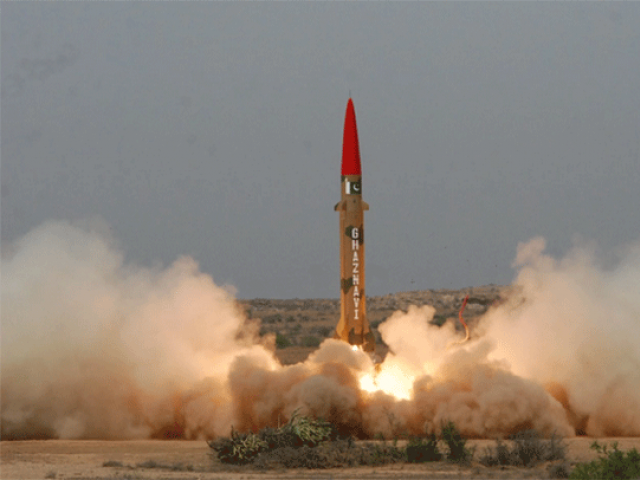Marshall Islands takes on India, Pakistan with nuclear warning at UN court
The Hague is holding hearings to decide whether it is indeed competent to hear lawsuits against India and Pakistan

PHOTO: ISPR
The small Pacific island nation opened a case against India, Pakistan and Britain in a David-versus-Goliath battle before the UN's highest tribunal based in The Hague.
Judges at the International Court of Justice are holding a series of hearings over several days to decide whether it is indeed competent to hear the lawsuits brought against India and Pakistan.
A third hearing against Britain, scheduled to start on Wednesday, will be devoted to "preliminary objections" raised by London.
Marshall Islands to open nuclear arms battle against Pakistan, India
The Marshall Islands aims to shine a new spotlight on the global nuclear threat, its lawyers said Monday.
Following US-led tests in the 1950s "several islands in my country were vaporised and others are estimated to remain uninhabitable for thousands of years," the country's representative Tony deBrum told the court.
He remembered in particular the "Castle Bravo" test of March 1, 1954, which he witnessed as a nine-year-old while fishing with his grandfather in an atoll, some 200 kilometres (125 miles) from the blast's epicentre.
"The entire sky turned blood red," deBrum recalled when US scientists exploded a hydrogen bomb, with a force 1,000 times stronger than the device dropped on Hiroshima in 1945.
"Many died, or suffered birth defects never before seen and cancers as a result of contamination."
Marshall Islands sue Pakistan, India and Britain over nuclear weapons
The Marshall Islands alleges that despite their suffering, the world's nuclear powers have failed in their obligations under the nuclear Non-Proliferation Treaty (NPT).
They were "not fulfilling their obligations with respect to the cessation of the nuclear arms race at an early date and to nuclear disarmament."
The hearings are starting just days after North Korean leader Kim Jong-Un Friday ordered the country's nuclear arsenal to be readied for pre-emptive use at any time.
The Marshall Islands had sought to bring a case against nine countries: Britain, China, France, India, Israel, North Korea, Pakistan, Russia, and the United States.
India and Pakistan along with North Korea have not signed the NPT treaty, and Israel has never admitted to having nuclear weapons.
But the ICJ has only admitted three cases against Britain, India and Pakistan because they already recognised the ICJ's authority.
India closing in on Westinghouse deal to build six nuclear reactors
The six other countries, including the world's two largest nuclear powers the United States and Russia "decided there was no need for them to respond to the Marshall Islands' filing," Majuro's lawyers lamented.
In 1996, the ICJ in another case issued a non-binding advisory opinion in which it urged the world's nuclear powers to negotiate a reduction of their nuclear stockpiles.
But two decades later, very little progress has been made to reduce the nuclear threat, observers attending the case told AFP.
The Marshall Islands therefore decided to sue the world's nuclear heavyweights as "it has a particular awareness of the dire consequences of nuclear weapons," it said in court papers.
Between 1946 and 1958 the United States conducted 67 nuclear tests in the Marshall Islands including Bikini atoll, deBrum told the ICJ's judges.



















COMMENTS
Comments are moderated and generally will be posted if they are on-topic and not abusive.
For more information, please see our Comments FAQ